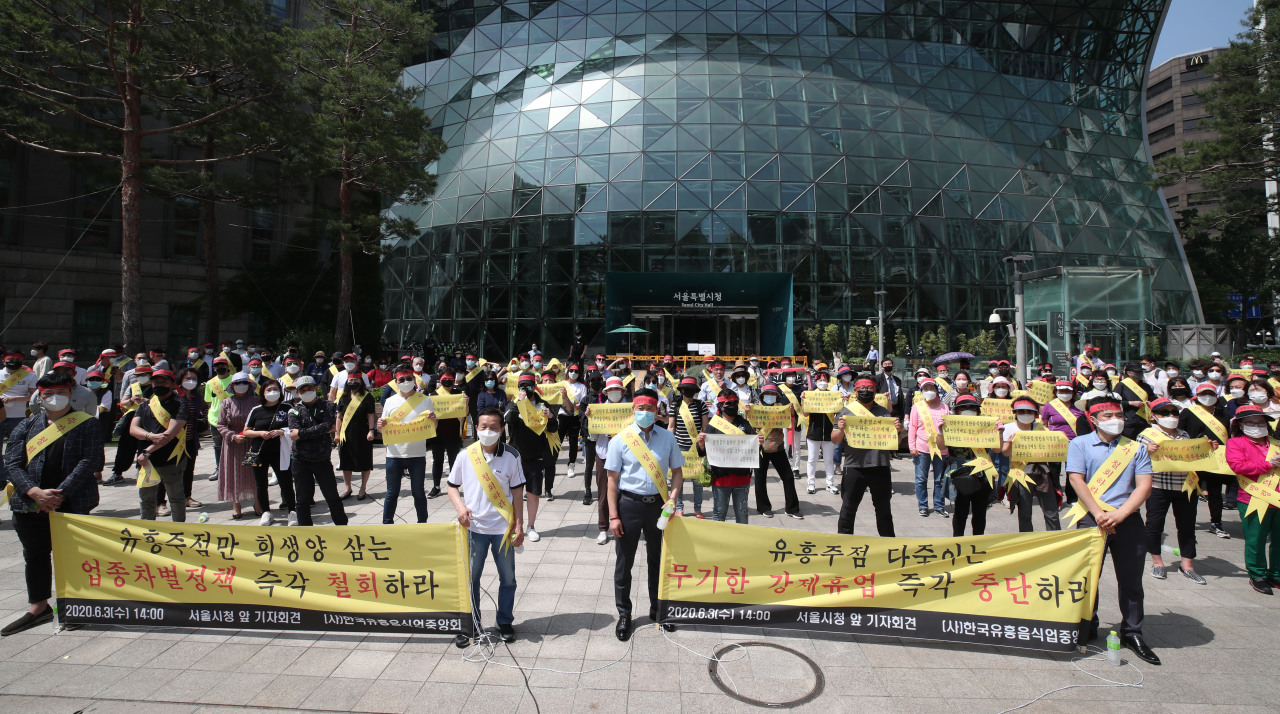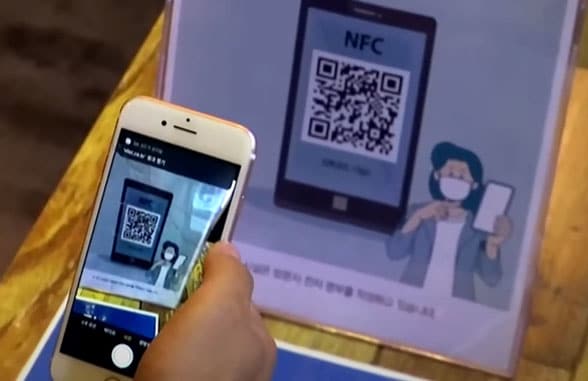News Get the latest updates on everything here at KORdotSIN
List[COVID-19] "We are victims of pandemic too!"
- Author KORDOTSIN
- Date20-06-10 16:32
- Views 4,967
- Reply 0
Link
Main text

Korean Nightlife Establishment Owners Protest!
Vibrant, and at times glitz and glam, South Korea’s nightlife scene attracts revelers from different age groups. And they haven’t stopped going out, even in an unprecedented global health emergency.
But an employee at a karaoke bar in southern Seoul tested positive for COVID-19 in April, and since then outbreaks have occurred at other karaoke establishments as well as in the popular Seoul nightlife spot of Itaewon. These incidents have prompted Seoul and other municipalities to order the shutdown of nightlife facilities deemed to present a high risk of spreading the virus.
Proprietors in Seoul’s adult entertainment industry say the directive has taken a heavy toll on business. They are calling on the Seoul Metropolitan Government to allow them to reopen as long as they commit to safety guidelines.
“I tightened my belt in March and April to pay my two employees, but after being out of business for two full months I wasn’t able to pay them last month. … My business is three months late on rent and I am under pressure from my landlord. … I don’t think I’ll be able to pay my credit card bill this month,” the owner of a small adult entertainment business in Seoul, surnamed Choi, told The Korea Herald.
Under the Food Sanitation Act, category 1 entertainment facilities, such as hostess bars and discos, are authorized to sell alcohol and hire entertainers, who are permitted to dance and sing with customers. Prostitution is strictly banned.
Vexed by the closure, which has stretched on for three months, Choi took to Seoul City Hall last week along with nearly 100 members of an organization of business owners in the adult nightlife industry, known as the Korea Central Council of Nightspot Business. They urged the authorities to change the policy, calling it “discriminatory.”
Seoul City had banned the operation of nightclubs, hostess clubs and other similar nightlife establishments -- over 2,100 businesses altogether -- for two weeks each in March and April. Then, last month, it ordered an indefinite shutdown that also extended to other businesses, including coin-operated karaoke rooms and table tennis clubs.
“Two business owners in Seoul have committed suicide within the last month or so after our sector came to a screeching halt. … I receive countless calls every day from angry members lamenting the directive and distressed about the financial difficulties it has brought on,” Choi Won-bong, managing director of the Korea Central Council of Nightspot Business, told The Korea Herald.

Korea's signature neon-lights in the bustling nightlife scene
Category 1 establishments are excluded from the low-interest loans Seoul City is offering to support small businesses. They are also not eligible for the relief funds the city has extended to some 410,000 self-employed people, 700,000 won ($587) monthly for two months.
“I think most people view businesses in the (category 1) industry (as having) profitability comparable to venues in Gangnam. But contrary to widespread belief, the monthly net revenue averages about 3 million won.”
Roughly 80 percent of such establishments in Seoul are small, with fewer than four rooms, according to Choi.
Business owners argue that the closure of category 1 facilities is arbitrary and unfair when similar facilities, such as karaoke rooms, remain open because they are under the oversight of the Culture Ministry.
“Frankly, karaoke rooms are run very similarly, if not the same, with us. I am subject to the ban because I registered as a category 1 business. In fact, I am losing my regular customers to karaoke rooms,” Choi said.
From a public health standpoint, one of the country’s leading infectious disease experts suggested, the shutdown should have applied to facilities based on the physical environment rather than the type of business.
“The level of danger (of COVID-19) does not differ by industry. … I think it would have been better for restrictions to have been applied to businesses that are crowded in confined spaces with poor ventilation,” Eom Joong-sik, a professor of infectious diseases at Gachon University Gil Medical Center, said over the phone.
With sporadic mass infections concentrated in the capital and the surrounding area, Seoul City officials are not letting their guard down.
“Based on what has happened at nightclubs in Itaewon, we believe there is a possibility of virus transmission at coin-operated karaoke facilities and adult entertainment businesses. … So we think it’s early to lift the measure,” a Seoul City public relations official said.

In a similar vein to Singapore, South Korea has mandated QR Code registration for establishment visitors
Adamant about getting business back on track, the Korea Central Council of Nightspot Business has sent a list of public safety criteria to Seoul City. Businesses should have to commit to them as a condition of reopening, as they do in Gyeonggi Province, the council believes.
The criteria include requiring visitors to register via QR code, installing surveillance cameras and keeping tables at least 1 meter apart, according to the organization.
“I don’t ask for Seoul City authorities to pay for everything nor to include us on the list of businesses eligible for loans. … I only ask for two things. First, Seoul City should cover monthly rent and tax,” business owner Choi said.
“Until a vaccine is out, we will not be free from the virus. We have done our share to curb the virus by closing our doors for two months. So secondly and most importantly, please let us reopen.”
If you would like to read more of the LATEST Korean news topics, click here!
This article is adapted from The Korea Herald.
